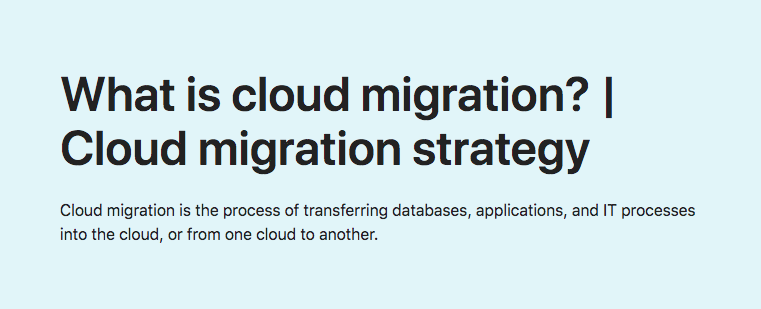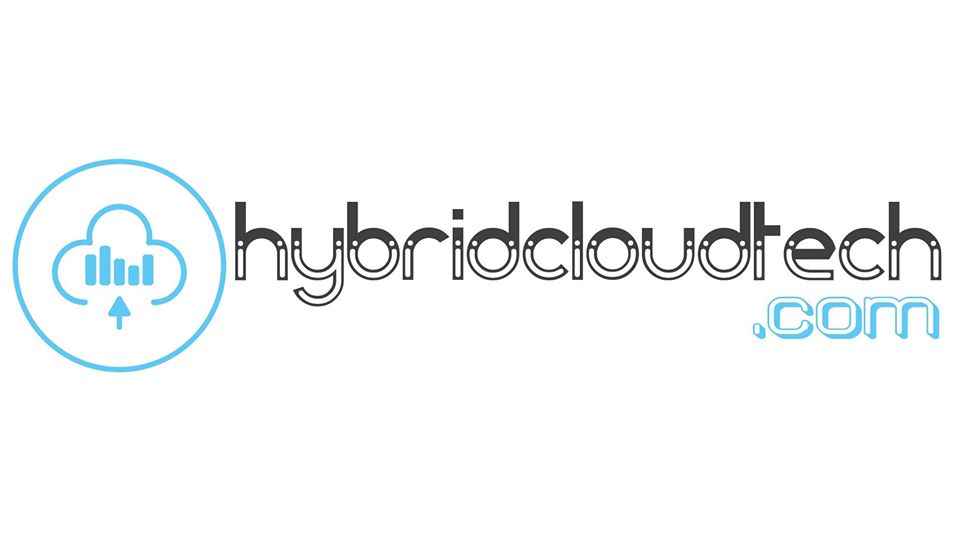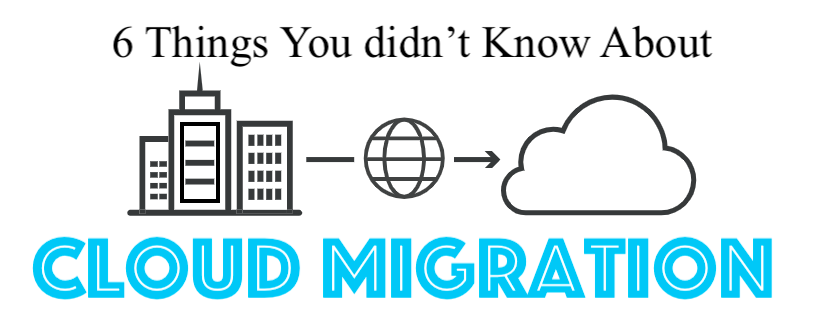While cloud adoption has been increasing for years, the move to remote work has led to many more businesses realising the benefits of using cloud platforms like Google Cloud, Amazon Web Services, or Microsoft Azure. But first, what is cloud migration?

Migrating to the cloud may be intimidating, and if done poorly, it can be detrimental to your company. We asked ten company executives and entrepreneurs, ranging from startups to SMBs, what they wish they’d known before embarking on their cloud migration journey. All their responses are here on this page.
New Recommended Articles
- Working Safely from Home – Online Security Measures in this Pandemic
- Importance of Web App Security over the Increasing Web Application Attacks
- Hybrid Cloud Security Puzzle: Integrated Solutions for Cloud Computing
- Make Sure Your Security Policies Survive the Transition to the Cloud
- Best Methods to Improve Information Security in Companies
- Healthy Ways to Guarantee Public Cloud Security: Best Practices & Guidelines
Know 10 Top Secrets of Cloud Migration Before Embarking on it
This is what the entrepreneurs said to us:
1. You might wish to store data on-site for a time.
According to Paul Miser, Chief Strategy Officer of Icreon, you should have an IT system set up on your cloud before migrating, but you should still maintain apps on your on-premises data centre to keep data secure.
"The first step is to choose which apps or IT systems you want to transfer to the cloud and which applications you want to run in your on-premises data centre." You might wind up with a big loss in terms of system failures if you don't have a defined legacy system migration strategy. To prevent this danger, you'll need to compare cloud service providers based on your requirements. When choosing a cloud service provider for migration, cost should not be the only consideration. System performance and availability are other important considerations while migrating. Because one of the most important considerations in the cloud migration process is security, you should select a reputable cloud computing service. Old modernisation experts take security seriously and use tools, best practises, and policies on a regular or large-scale basis to guarantee that data transfer from legacy systems is as seamless and efficient as possible."
Icreon's Paul MiserBecause moving everything online may be costly, keeping data on-site can be a major stress reliever, says Reuben Yonaton, Founder and CEO of GetVoiP.
"I wish we knew that it's often preferable to keep some data on-site, even when you're conducting a large-scale migration. There are a variety of possible reasons, from security to convenience to cost, why you might want a particular database to remain on-premise[s]. A cloud migration specialist may push you to go fully integrated. Know what your needs are and what your budget is to get it done, as well as how migration for that data segment will work in the future. You may want to reconsider migrating 100 percent."
Reuben Yonaton, GetVoiP2. Don’t transfer all of your data and information all at once.
Data should be moved to the cloud in stages, according to Veronica Miller, Cybersecurity Expert at VPNoverview.
"The most cost-effective method to cut costs is to migrate to the cloud in phases. Batch data migration offers the advantage of breaking down a financially intimidating undertaking into smaller, more manageable parts over time."
VPNoverview, Veronica Miller3. It is not entirely simple to migrate to the cloud.
Sphere‘s CEO and Founder, Rita Gurevich, discusses why moving to the cloud may be difficult. Data security is always a worry, and managing a cloud migration effectively is critical.
"Highly regulated businesses are confronting the issue of keeping compliant with internal and external auditors as the cloud migration proceeds. They must maintain vigilance over data security regardless of where it is stored. Before migrating to the cloud, it's a good idea to 'clean-up' their data and access management concerns."
Sphere, Rita Gurevich4. Have a plan in place for cloud migration.
Moving to the cloud, according to Tom Winter, Co-Founder of DevSkiller, is a difficult operation that can take anywhere from a few days to a few months. To guarantee a seamless transfer, there are hundreds of unique elements to consider.
"I wish we had a cloud migration officer to help us prepare our migration strategy before my company's relocation." Choosing a cloud migration strategy is critical since it will serve as the basis for future migration attempts. Changing migration tactics in the midst is illogical and seldom practical. Hundreds of factors must be taken into account. Choosing the type of cloud (public, private, hybrid, or community) and service provider/vendor you'll work with. Secondly, understanding the data compliance requirements, ensuring that your [licences] are in order (if using third-party services). Thirdly, keeping track of latency and performance, backing up data, and ensuring that you have loss prevention policies in place. And lastly, double-checking that your cloud security is formidable."
DevSkiller's Tom Winter is an expert in the field of software development.Hybrid Cloud Tech team evaluates your company’s needs, assists you in selecting the best cloud platform. Secondly, give you guide on how to backs up your data, and also recommendations to prevents data loss when migrating apps to the cloud. Data security is ensured by free procedures in our posts.
A significant part of Alan Harder’s cloud migration strategy is deciding which apps go to the cloud and which stay on-premises, according to the mortgage broker.
"A thorough evaluation of apps may be necessary to determine which apps to migrate and the migration strategy to employ for each. Two major considerations must be examined before transferring any programme: cost-effectiveness and platform security."
Mortgage Broker Alan HarderProfessionals from hybrodcloudtech.com can help you choose the optimal migration method for each of your apps, as well as the best architecture for your budget.
5. Hire a Professional Consultant.
Harriet Chan, Co-Founder of CocoFinder, regrets that her firm did not engage a professional consultant to help with the transfer, which would have made it easier.
"Due to a lack of consultation, our cloud migration became a source of misery for our company for a long time. We made the error of doing everything ourselves to save money on expert advisors. Looking back, engaging with a cloud migration specialist would have been beneficial in avoiding issues like project cost overruns, protecting corporate and customer data, and learning how to establish a backup plan. We didn't realise we needed to upgrade our software once we moved, so we weren't getting the most out of being in the cloud."
CocoFinder's Harriet ChanSubscribe to our newsletter because we usually publish updates that will help you make a smooth move to the cloud. Following the migration of your organisation to the cloud, we give continuous assistance to ensure that you’ve completely transitioned and are therefore able to fully utilise the cloud. This reduces any additional expenses incurred as a result of poor migration tactics.
Levity‘s Chief Technology Officer, Thilo Huellmann, recommends engaging a professional consultant to assist identify and reduce expenses.
"When it comes to cloud migration, the best approach to minimise high expenses is to plan ahead. Work with your cloud provider to establish the expenses involved with the cloud migration before signing any contracts. Consider all expenses involved with system administration, including direct expenditures, operational costs, administrative costs, and any additional costs. Having a comprehensive picture of all of these factors helps to control the project's cost and scope. It will also help you prepare for future development by predicting timing, reducing interruption, and estimating timing."
Thilo Huellmann, Levity.We always provide you with a free consultation to help you better understand your relocation. This consultation will look at your unique requirements and present you with a quotation for any anticipated expenditures. You’ll know precisely what you’re paying for this way.
6. Demonstrate the success of the migration.
Mike Chappell, the founder of Formspal, believes that everyone should understand why this decision was taken and how it would help the firm.
"Even if your initial migration goes smoothly, it's essential to develop ways to demonstrate the cloud's benefits both before and after the transfer." Demonstrate how the new application architecture will adhere to Service Level Agreements, how auto-scaling will be configured to absorb unanticipated traffic surges, how server response times will remain constant or may be improved, and how using multiple locations around the world reduces latency and improves the user experience. Make sure to emphasise the advantages from a business perspective as well, especially for customer-facing apps. Demonstrate how [response] times enhance engagement and conversion rates for important customer journeys across the [application]."
Mike Chappell, Formspal.Our staff collaborates with you to bring your apps up to date. We also provide various cost-cutting alternatives, such as instance rightsizing and saving choices, which allow you to utilise the cheapest resource that still fulfils your requirements.
According to Richard Mews, CEO of Sell With Richard, you should know what your consumers desire during the transition and demonstrate that you listened and heard them thereafter.
"Recognize how your app's users benefit from it. While technical performance is important, understanding how users engage with and appreciate your apps is even more important. Take time to engage your users as you prepare to embark on your cloud journey, whether they are internal users of internal applications or external customers that rely on your apps to access digital services. You may gain a thorough understanding of the value provided by an application and its related services by combining your study with user or customer path mapping and key transaction discovery."
Richard Mews, Sell With Richard.We at HybridCLoudTech interact closely with our readers/customers to guarantee a smooth transition. Our team will assist you in making the transition to the cloud, developing a plan, and providing continuous assistance as you adjust. We offer cost-effective services and solutions so you don’t have to pay more than is necessary. Subscribe to email updates if you’re ready to migrate to the cloud.
Tips: What is cloud migration? | Cloud migration strategy
Cloud migration is the process of transferring databases, applications, and IT processes into the cloud, or from one cloud to another.
Keep reading
- Microsoft Cloud Services Improve the Quality of Life in China
- China’s Cloud Computing Industry is still in Overheating Period
- Domestic Cloud Computing Market Technology lacks Business Model Innovation
- Why Enterprises uses Cloud Computing more than other Resources
- Why Public Cloud must Ensure Reliability and Security
- Cloud Operators Inflates Cloud Computing Layout








